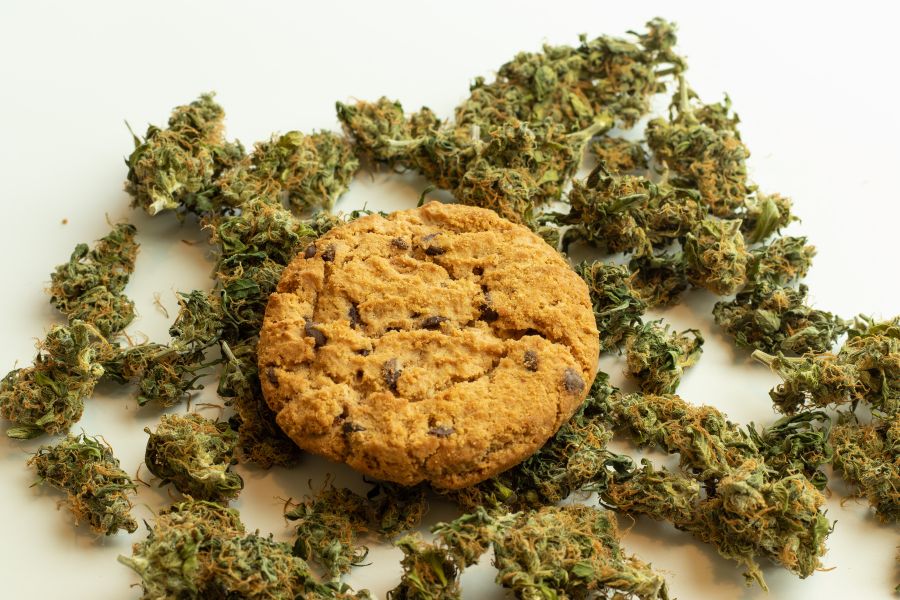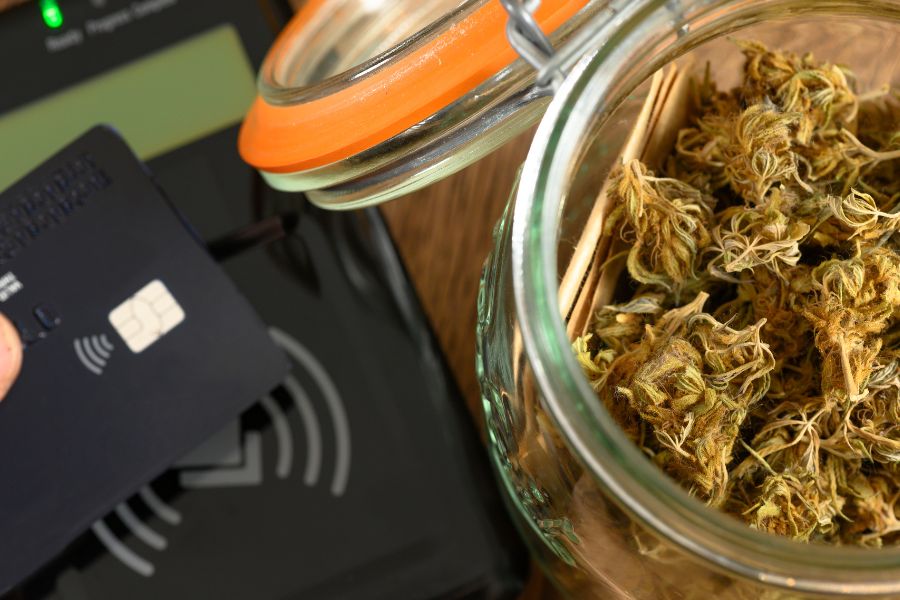Thailand is an open market and has integration with other countries in the world thanks to its tourism potential to attract tourists from all over the world. Therefore, the permission to use and sell CBD within the framework has been approved in the country. However, is CBD legal in Thailand or not especially in the field of food? In this article, we would like to analyze and clarify this.
What is CBD?
Cannabidiol (CBD) is a naturally occurring compound found in the cannabis plant. It does not cause psychoactive effects to the user, but instead, it brings a feeling of relaxation, with effects such as pain relief, antioxidant, anti-inflammatory, and anti-tumor. CBD’s mechanism of action is to indirectly affect the endocannabinoid system, helping to increase regulation and the ability to self-regulate homeostasis so that the body can function normally and be healthy. CBD is considered safe because it is not intoxicating, or addictive and does not alter body function or memory. The toxicity in CBD is extremely low and there is no scientific record of CBD damage to human DNA (deoxyribonucleic acid).
Is CBD legal in Thailand?
Currently, CBD is approved by many countries in the world and the question is CBD legal in Thailand? Indeed, Thailand is an open country to tourism and attracts many visitors from all over the world who come from countries that accept CBD. Therefore, Thailand has accepted it. This substance from cannabis is legalized for agriculture and tourism here. Thai people are allowed to sell cannabis products and grow cannabis plants at home provided that they have a license. However, the recreational use of marijuana is still prohibited. Cannabis-containing products must not exceed 0.2 percent concentration of THC (tetrahydrocannabinol), the main psychoactive ingredient. People are also not allowed to smoke marijuana in public places and violators will be subject to administrative or even criminal penalties.
Thailand tightens use of hemp and CBD in foods
The use of this cannabis compound is approved to stimulate tourism to the country but is CBD legal in Thailand in the food industry? Actually, after enacting the widespread use of CBD, 3 months later, the country’s government had to tighten the use of hemp and CBD in foods.
They have enacted 3 laws regarding this substance in food. The first one is in spices; the amount of CBD should not exceed 0.0028% by weight. When it comes to other food products, the amount of CBD should not exceed 1.41 mg per unit strength. And all specific parameters must be clearly stated on the product label in other words, buyers need to know the content of this compound when they buy. Therefore, business enterprises need to ensure to provide sufficient information and parameters on omnichannel sites. The second ordinance deals with cannabis seeds. Controlling the amount of CBD in cannabis seeds used for food, cannabis oil and cannabis proteins has been lifted. And the last stipulates that CBD mixed with other substances not harmful to health can be used as an ingredient in food products.
Conclusion
Is CBD legal in Thailand? The answer will be yes and sure that the right laws will be enacted so that users and businesses can conduct trade smoothly in all areas such as food or agriculture. If you need a system to support the management of CBD-containing products, contact us.
ConnectPOS is a all-in-one point of sale solution tailored to meet your eCommerce POS needs, streamline business operations, boost sales, and enhance customer experience in diverse industries. We offer custom POS with features, pricing, and plans to suit your unique business requirements.




